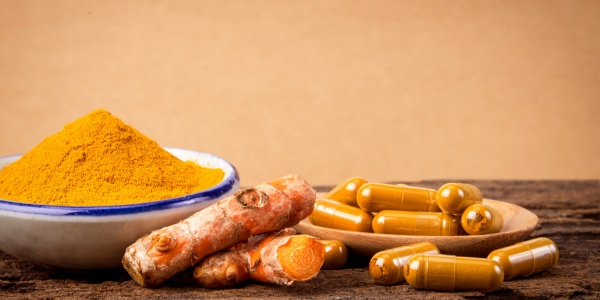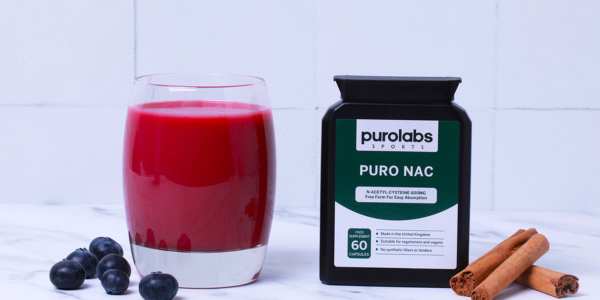Lion’s mane is a fascinating medicinal mushroom also known as
yamabushitake, bearded tooth fungus, bearded hedgehog or its latin name Hericium Erinaceus.

Lions Mane
Lion’s mane was first used as a medicine as far back as 618 AD, during the Tang Dynasty in China, to promote longevity and boost brain power. It was also popular in Korean and Japanese medicine for its potential effects on cognitive function.
Since then, medicinal mushrooms have made a comeback when it comes to alternative therapies.
Whilst it is taking centre stage in emerging new therapies as a potent mind-boosting nootropic, this mushroom which is named after its shaggy bearded appearance has been touted for its promising effects on ADHD.
The potential health benefits of Lion's mane are multifaceted, with the medicinal mushroom showing improvements in:
Heart health - A study on mice which were fed a high fat diet, showed a reduction in triglycerides by almost a third and a reduction in weight by 42% after 28 days1
Immune function - An animal study showed its ability to protect the intestinal immune system from pathogens entering the gut through the mouth and nose2.
Inflammation - A study found that it has inhibitive effects on inflammatory pathways and potentially helps to improve tissue inflammation3
Diabetes management - Several studies have shown Lion's mane to help improve insulin sensitivity in both diabetic and non-diabetic mice, with daily doses as little as 2.7mg per lb of body weight4
In this article we’re going to explore its effects on ADHD.
ADHD (attention-deficit/hyperactivity disorder) is a neurodevelopmental condition which affects impulsivity, notably characterised by chronic patterns of inattention and/or hyperactivity, with symptoms significantly differing in severity between individuals5.
It is one of the most common developmental conditions affecting children6 with the condition commonly reporting to affect daily life, relationships, career and educational outcomes.
In the UK it is estimated that around 5% of children7 and 3-4% of adults are diagnosed with the condition.
Improves Cognitive Health
Lion’s mane has been shown to help support brain derived neurotrophic factor (BDNF). BDNF is a protein which has a key role in neurogenesis, aka helping to build neurons. It does so by helping to increase levels of pro-BDNF, a precursor to BDNF8.
BDNF is a crucial protein in the brain, which has been shown to support neural plasticity, improve the communication between nerve cells and improve executive function - all key elements to consider when supporting ADHD symptoms9.
A number of studies unearth one of the most common characteristics of ADHD; impaired working memory. Working memory is characterised by being able to temporarily hold and process information which plays a key role in being able to store and encode information. A study found a promising therapeutic benefit of enhanced working memory, through its positive effect on BDNF making it a potential therapy for those with ADHD10.
May Relieve Mild Anxiety & Depression
A small study on 41 adults aged between 18-45 showed Lion's mane as a potential alternative therapy for cognitive function, stress and low mood.
The results of the 28 day study showed improved response to stress and speed of performance in the subjects. Whilst the study is promising, the small cohort and relatively short study length would need to be revised and further studies with longer intervention periods and cohorts would help support these findings. Another point to consider is the fact that the study didn’t screen for individuals with ADHD. So, whilst Lion’s mane may help with performance and mood, studies specifically on those with ADHD would better help predict outcomes on its effects on the condition11.
May Protect Against Dementia
Dementia is a growing condition, affecting 7% of the UK population, and is characterised as a progressive condition - leading to a decline in memory, thinking and language abilities12. A 2023 study established that individuals with ADHD may be at an increased risk of developing dementia later in life13.
A mice study found that Lion’s mane reduced memory loss by preventing amyloid-beta plaques accumulating in the brain14.
Amyloid plaques, which are protein deposits that gradually grow in numbers between nerve cells in the brain, are a hallmark of Alzheimer’s disease. Plaques form and clump together causing physical divide between brain cells, affecting the communication and function of brain nerve cells, contributing to the symptoms of the disease15
Do the Studies Support Lion’s Mane for ADHD?
At present, the studies don’t categorically support Lion’s mane as an alternative therapy for ADHD.
Whilst some of the studies are certainly promising, the sample sizes, duration and the fact that the majority of studies are animal based make it difficult to support the mushrooms effects on the condition.
The studies also lack study participants who have ADHD, and lack children as part of the study (which we know make up the majority of ADHD diagnoses).
It is also thought that dopamine, the key neurotransmitter that influences ADHD isn’t directly impacted by Lion’s mane intake.
We may not be able to fully establish the clinical impact of Lion’s mane on ADHD, however theoretical associations between the mushroom and cognitive function have been established. More studies need to be carried out on relevant groups, with longer time frames to support the link.
As medicinal mushrooms are gaining incredible popularity in naturopathic medicine, watch this space for potential future scientific discoveries.
Doses & Safety Precautions
There is no current standard recommended daily dose for Lion’s mane.
However, a human study on participants aged 50 and over, discovered a correlation between 1050mg Lion’s mane per day across 49 weeks and a reduction in mild symptoms associated with Alzheimer’s disease16.
Another study found that taking 1200mg daily for two months improved sleep quality and reduced signs of anxiety and depression17.
It is important to note that if you have a mushroom allergy then it is advised to avoid Lion’s mane or any other medicinal mushroom. If you are taking a medicine which affects blood clotting or blood sugar levels, do check with your doctor before trying Lion’s mane.
Whilst more clinical data needs to be gathered to support the efficacy of Lion’s mane on ADHD, don’t underestimate the potent effect that medicinal mushrooms have on human health. If you would like to explore mycology to help improve your own health whether that be cognitive or any other bodily system, do check with a licensed healthcare practitioner before adding the nootropic to your daily supplemental toolkit.

 Beauty
Beauty
 Bone Health
Bone Health
 Brain Health
Brain Health
 Energy
Energy
 Eye Health
Eye Health
 Gut Health
Gut Health
 Hair
Hair
 Hormonal Health
Hormonal Health
 Heart Health
Heart Health
 Immunity
Immunity
 Joints
Joints
 Menopause
Menopause
 Pregnancy
Pregnancy
 Kids
Kids
 Sleep
Sleep
 Stress & Mood
Stress & Mood




















